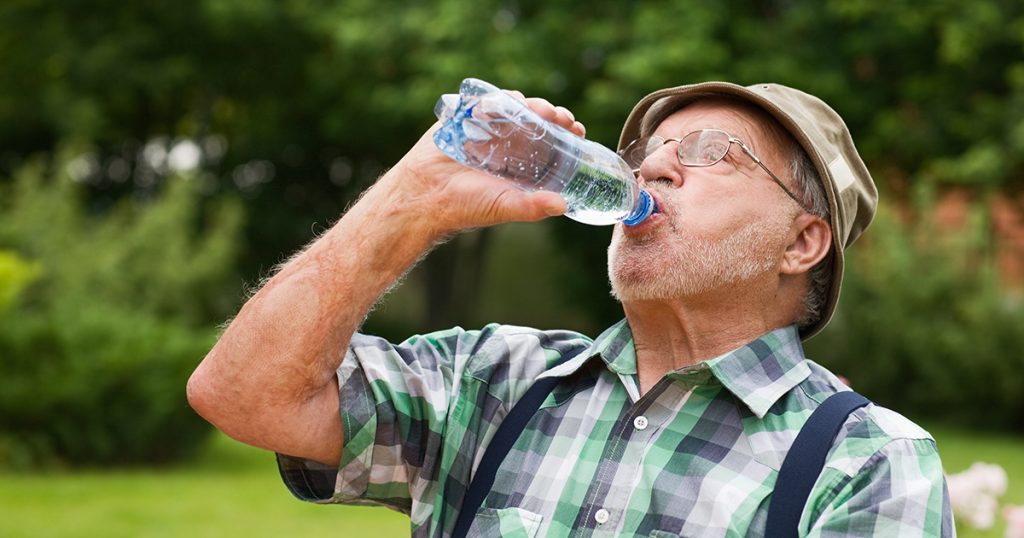It is crucial during summer months for older adults and caregivers to be aware of the risks extreme heat poses and take preventive measures. Here are 5 things to know about seniors and heat stroke during the summer:
1. Understand causes & symptoms of heat stroke.
Heat stroke occurs when the body struggles to regulate its temperature. Older adults are more prone to heat stroke due to various factors, including certain chronic conditions, medications, feeling less thirsty and decreased ability to sweat. It is important to be aware of some of the common symptoms—high temperatures, rapid pulse, dizziness, confusion, headache or loss of consciousness.
2. Dress for the weather & avoid peak hours.
Aways try to wear loose-fitting, lightweight, light-colored and breathable clothing during hot weather. Hats are always a good option. They can provide shade and help protect the head and face from unwanted sun. In addition to dressing for the weather, try to avoid peak hours—typically between 10 a.m. and 4 p.m. And, as always, stay hydrated!
3. Help create & maintain a cool environment.
It is always best to ensure seniors have access to a cool environment, both in public and within the home. If there is not adequate cooling, consider other options, including spending time in air-conditioned malls, community centers or public libraries. Additionally, taking precautions within the home can help reduce the risk of heat stroke. This includes making sure spaces are well-ventilated, using fans or air conditioning and closing curtains or blinds during the hottest parts of the day.
4. Check on your seniors!
Be sure to check on your older adults routinely, especially if they live alone or without reliable air conditioning. Checking-in could include phone calls, in-person or virtual visits or having a neighbor stop by when needed. Be sure to look for signs of discomfort, dehydration or confusion. Make sure to review the medications seniors are taking to help identify any that could impact regulating their temperature. If necessary, consult their provider about any necessary adjustments to their dosage or potentially switching to alternative medications during hot periods.
5. Be prepared for heat-related emergencies.
If you suspect a heat stroke, call emergency services immediately. Until medical help arrives, move the person to a cool area. Remove excess clothing and try to cool with wet towels, fanning or applying ice packs to the armpit and groin areas.
Remember, heat stroke is a medical emergency, and timely intervention is crucial. By understanding the causes, symptoms and taking preventive measures, you can help protect older adults from the dangers of excessive heat.




